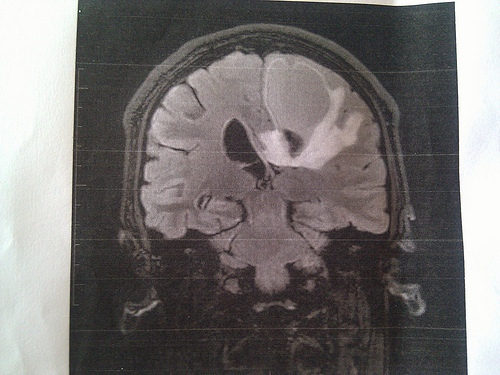We run our website the way we wished the whole internet worked: we provide high quality original content with no ads. We are funded solely by your direct support. Please consider supporting this project.

Why Did God Heal or Not?
In 1996 a 27-year-old man in my church named David was diagnosed with an inoperable brain cancer. The doctors decided to send David to the Mayo Clinic to receive some experimental treatments on the slim hope these might at least prolong his life. The night before David left, I and a dozen other people went over to his house to pray. For over two hours we engaged in fervent warfare prayer on his behalf, revolting in Jesus’s name against the cancer and anything in the spirit realm that might be involved in it.
Two days later I received an elated call from David. The doctors at the Mayo Clinic could not find any trace of cancer!
Of course, the mayo clinic staff insisted that David’s local doctors must have misread his brain scans, but his local doctor said this wasn’t possible. The mystery was never resolved, which was fine with us. We just praised God that he was set free from a life-threatening infirmity that ultimately is traceable back to Satan’s oppressive regime.
But we must be honest. As impressive as this event was, it’s possible nothing supernatural occurred. Despite their insistence to the contrary, David’s doctors may have misread his brain scans, and it’s possible David’s cancer went into “spontaneous remission.” But these seem very unlikely. And since I have good reason for believing Jesus is the son of God and that his followers are supposed to be able to affect things through the power of prayer, I feel justified calling David’s healing miracle.
Now, in the interest of full disclosure, and to illustrate how arbitrary life sometimes this, I’m compelled to add the sad fact that three years after his miraculous healing, David’s brain cancer returned. And this time he wasn’t healed.
I admit that this is theologically disturbing. But I don’t think this invalidates the miracle. For all we know, Lazarus may have died three years after Jesus raised him from the dead, perhaps from the very disease that killed him the first time (John 11:1–46). All healings this side of heaven are temporary signs of the coming age when all forms of infirmity will be permanently overcome. Until the kingdom comes in its fullness, we will all eventually die. The very last enemy that will be overcome is death (1 Cor 15). So David’s death doesn’t undermine the genuineness of the healing.
But it does illustrate how mysterious and seemingly arbitrary life is. Why was healing prayer effective in one instance but not in another, when we were revolting against the same illness in the same person? It’s impossible to say. Yet, as I said in yesterday’s post, it’s important we understand why we can’t understand this. It’s not because God’s will or character is so mysterious. It’s rather because we live in an unfathomably complex creation.
We don’t need to blame the arbitrariness of life on God. Nor do we need to try to explain away this arbitrariness by claiming some people have sufficient faith while others don’t. We simply need to respect the impenetrable ambiguity of an unfathomably complex creation and confess, as finite human beings, that “we don’t know.”
Image by mathrock via Flickr
Category: Q&A
Tags: Faith, Sickness, Spiritual Warfare, Warfare Worldview, healing
Topics: Faith & Doubt, The Problem of Evil
Related Reading

In the Wilderness of Religion
Eric Bryan via Compfight There are an awful lot of us in the Church today who are no longer feeling at home in Evangelicalism. Regardless of how you feel about World Vision’s hiring policy decisions, the spectacle of thousands of people discontinuing their child sponsorships (relationships with flesh and blood children in need) because of…

What is the Warfare Worldview?
The warfare worldview is based on the conviction that our world is engaged in a cosmic war between a myriad of agents, both human and angelic, that have aligned themselves with either God or Satan. We believe this worldview best reflects the response to evil depicted throughout the Bible. For example, Jesus unequivocally opposed evils…

Sermon Clip: Waking from Oz
In this unique sermon clip, Greg Boyd explains to us his “Theory of OZ” based on the movie Wizard of Oz. In the movie Wizard of Oz, the characters are all looking for something they think they need. As Christians, we do the same. Whether it’s a new job, a marriage, a lack of a…

Hearing and Responding to God: Part 3
We decided to change the title of this series to better reflect it’s content. Hope that’s not confusing. Greg continues his thoughts here on hearing when God speaks to us and being willing to respond even when we’re not completely certain. You can view parts one and two here and here.

Angels and Spirits in a Secular World
This week, we’ve been thinking about why we should believe in a spiritual realm in a world shaped by secular thought. One argument that supports the belief that spirits are real is the oldest, most venerable, and most popular argument for this belief in the western intellectual tradition. In essence the argument runs as follows:…

Henry’s Mom: Did God Author This?
Many of you were touched last month when we featured some reflections on little Henry’s death. Well, Henry’s mother Jess has started a blog to process through some of her thoughts and we wanted to share this amazing piece with all of you. Jess thinks ahead to the time when her two-year-old daughter will start…
